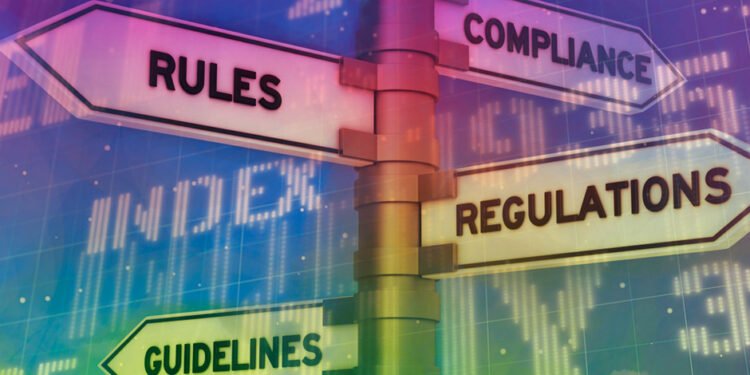The rise of digital assets has prompted significant regulatory attention in recent years, particularly from the U.S. Securities and Exchange Commission (SEC). As markets for digital assets evolve, the SEC’s role in shaping regulatory frameworks becomes increasingly important. These guidelines are designed to offer clarity for businesses, investors, and other stakeholders involved in the space, ensuring that financial markets remain secure and transparent while accommodating new technologies.
Understanding the SEC’s Role in Digital Asset Regulation
The SEC has been active in addressing the challenges presented by digital assets, which often blur the lines between traditional securities and new forms of investment. As the industry grows, the need for clear regulatory guidelines becomes essential to maintain market stability and investor protection.
Defining Digital Assets and Securities
A key component of the SEC’s guidance revolves around the classification of digital assets. Digital assets can take various forms, including tokens, stablecoins, and other digital representations of value. The SEC uses a broad definition, which incorporates the Howey Test—a legal standard used to determine whether a particular asset qualifies as a security.
If a digital asset is deemed a security, it must comply with existing securities laws, including registration requirements, disclosure obligations, and anti-fraud provisions. This ensures that investors have access to accurate, reliable information and can make informed decisions when participating in the market. You can also explore https://ethereum-code.org/ for further information.
SEC’s Stance on Token Offerings
A significant portion of the SEC’s digital asset guidance pertains to token offerings. Initial coin offerings (ICOs) and other token issuance methods have come under scrutiny by the Commission. Many tokens, despite their innovative nature, may be classified as securities under U.S. law, depending on their characteristics and the way they are marketed.
When a project raises capital by selling tokens to the public, it may trigger the SEC’s jurisdiction, requiring the offering to adhere to the same regulations as traditional securities offerings. This includes the need to provide proper disclosures, file necessary registration forms, and ensure compliance with investor protection rules. The SEC has also emphasized that merely labeling a token as a utility or offering it under certain platforms does not automatically exempt it from being classified as a security.
Key Considerations for Market Participants
Digital asset participants, whether they are startups, developers, or investors, must navigate a complex landscape shaped by the SEC’s evolving guidelines. For companies involved in the creation or trading of these assets, several critical considerations must be made.
Regulatory Compliance and Reporting
Businesses in the digital asset sector must be prepared to meet the SEC’s stringent requirements regarding compliance and reporting. This includes providing transparent financial disclosures and conducting regular audits to ensure the accuracy of financial statements. In particular, firms must be vigilant about following the laws related to anti-money laundering (AML) and know-your-customer (KYC) procedures, which are vital for preventing illegal activities in the space.
The SEC has made it clear that it will pursue enforcement actions against firms that fail to comply with these regulations, with significant fines and penalties for those that attempt to circumvent the rules.
Investor Protection and Market Integrity
Investor protection is a cornerstone of the SEC’s digital asset regulation efforts. The Commission has emphasized its commitment to ensuring that markets remain fair, orderly, and free from manipulation. As part of its regulatory framework, the SEC enforces laws that prevent fraudulent practices such as market manipulation, misleading disclosures, and misrepresentation of the assets’ value or risk.
The guidelines are also intended to protect smaller investors, who might be more vulnerable to the volatility and speculative nature of digital assets. By requiring that firms meet certain disclosure and compliance standards, the SEC aims to ensure that individuals can make more informed investment choices while reducing the potential for fraud.
Future of SEC Regulations on Digital Assets
The SEC continues to refine its approach to regulating digital assets, with an eye on fostering innovation while maintaining stability in the financial markets. As the industry evolves, it is expected that the guidelines will undergo further updates, with an increasing focus on new innovations such as decentralized finance (DeFi), stablecoins, and other emerging technologies.
Balancing Innovation and Regulation
The SEC faces the ongoing challenge of balancing regulatory oversight with the need to allow for innovation in the digital asset space. Striking the right balance is crucial to ensuring that the U.S. remains competitive in the global digital economy while also protecting investors from undue risk. The Commission’s evolving stance on digital asset regulation will continue to shape the future of this dynamic sector.
In conclusion, the SEC’s guidelines for digital assets represent a crucial step in the development of a secure, transparent, and fair market. These regulations aim to protect investors while enabling the continued growth of the digital asset industry. As the regulatory landscape continues to evolve, market participants must stay informed and prepared to adapt to new rules that will inevitably shape the future of digital asset markets.












